03/12/24
Oregon Governor Tina Kotek focuses the final Decarbonizing the West workshop on cross-boundary collaboration
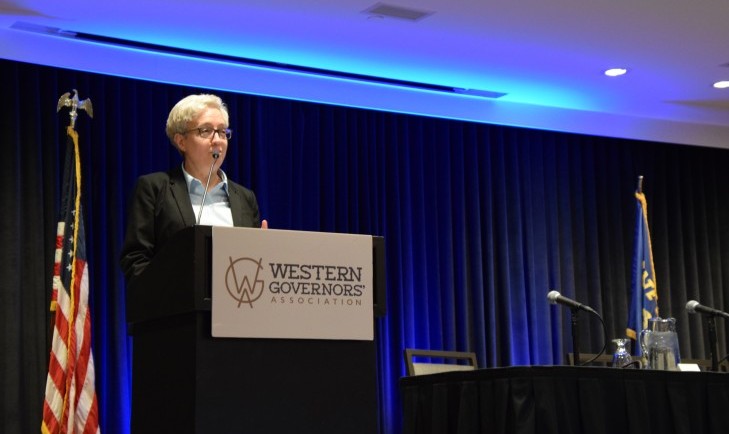
Oregon Governor Tina Kotek kicked off the final workshop of the Decarbonizing the West initiative by speaking about the importance of interstate collaboration for successful decarbonization efforts.
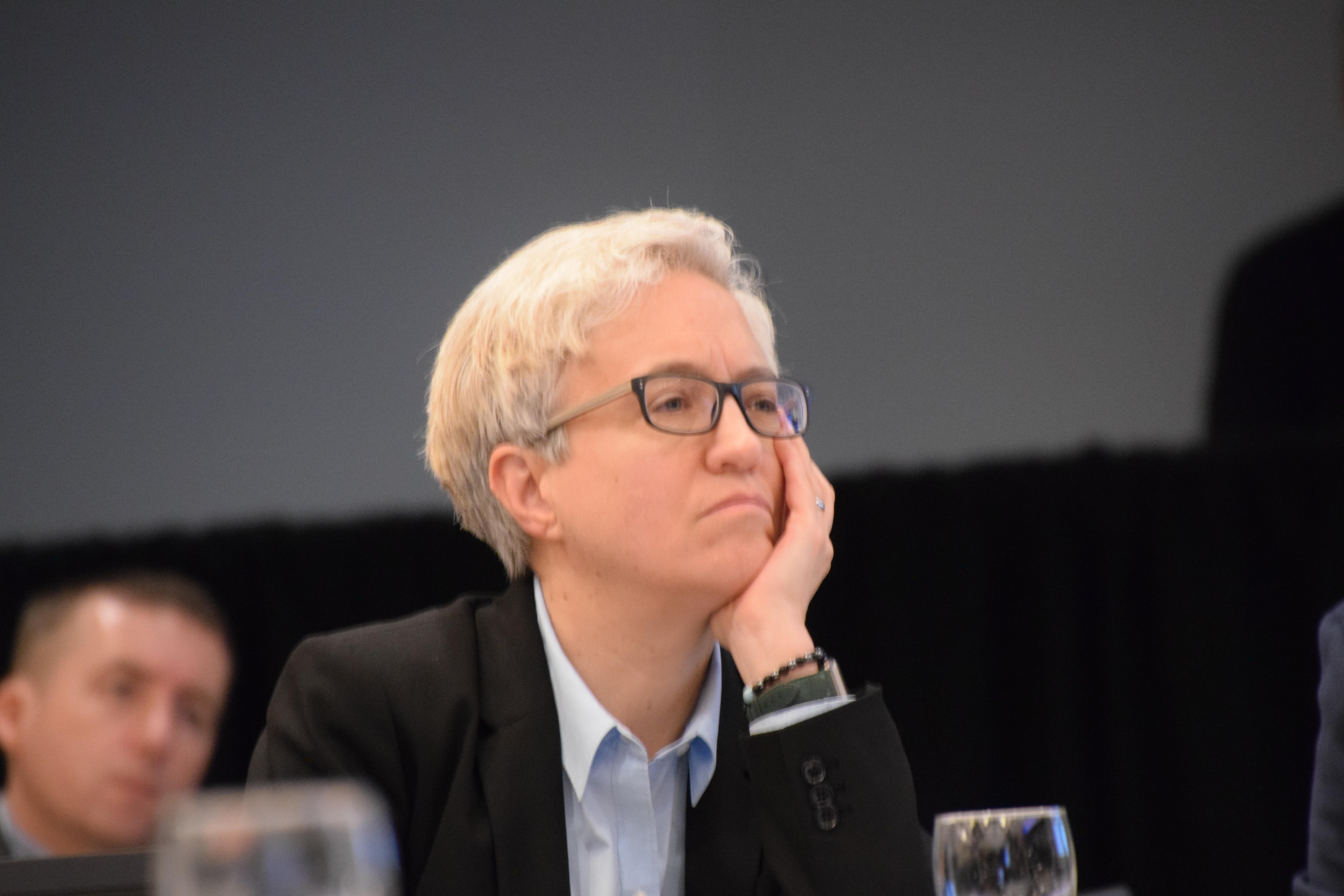
While the workshop’s panelists emphasized the need for different decarbonization pathways in different parts of the country, they examined the viability of several methods already being deployed in the Pacific Northwest, including sustainable forest and agricultural management, biomass utilization for energy or carbon storage, preserving coastal ecosystems as carbon sinks, and opportunities for large-scale carbon removal and storage.
“Our natural and working lands are a cornerstone of our rural and tribal economies and an integral part of building healthy, climate resilient communities,” Governor Kotek said. “They're also a powerful resource to help meet our state's ambitious climate goals, sequester carbon, and respond to a future of increasing uncertainty.”
Combined with the emerging prospects to sell captured or sequestered carbon – either as carbon offset credits or as a base material for carbon-derived products – the workshop panelists said these decarbonization practices not only work together to increase the region’s capacity for carbon sequestration, but also provide an opportunity to address issues of environmental justice by developing new sources of revenue that make these practices more widely available to smaller landowners and tribal communities.
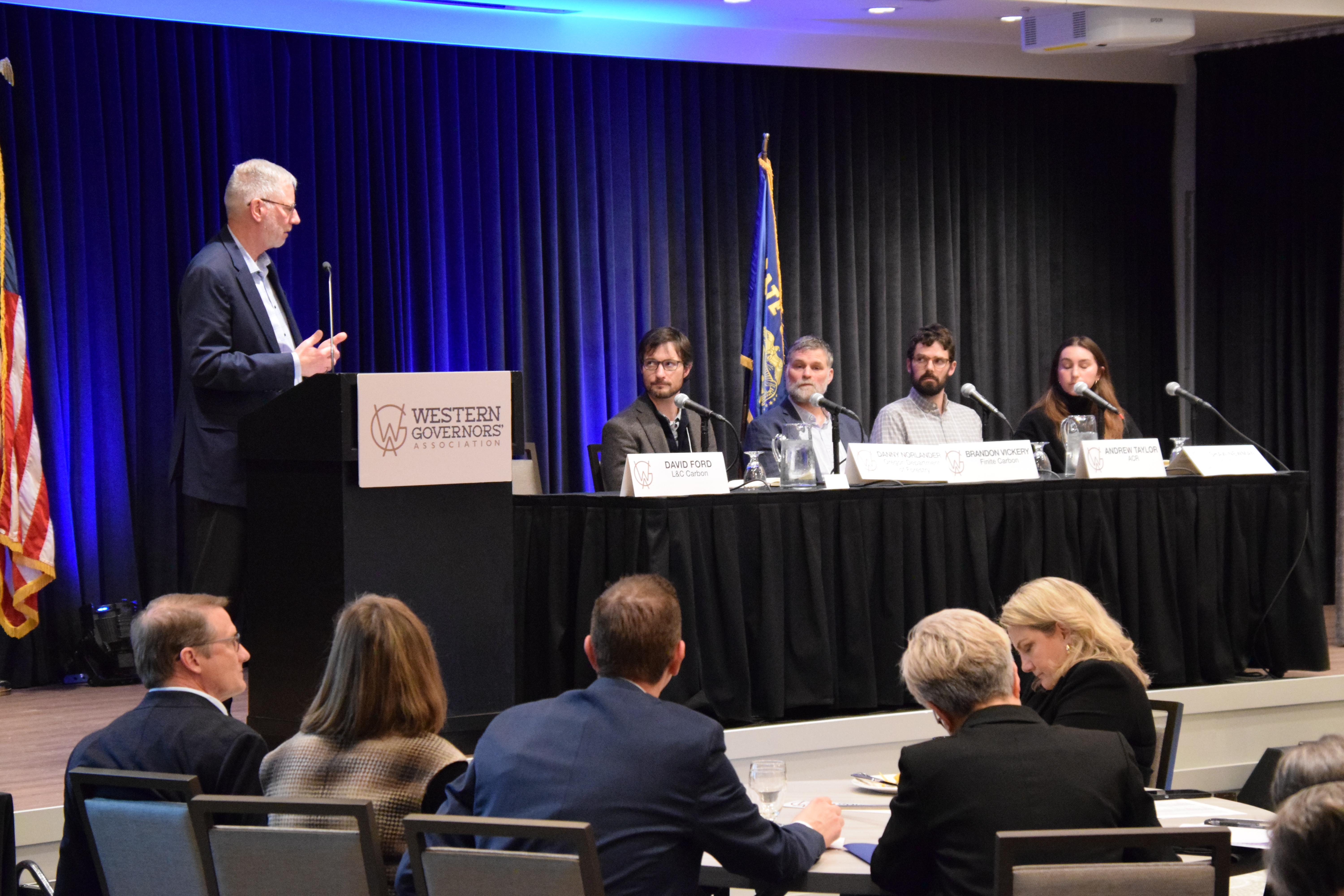
The same can be said of agricultural landowners, coastal estuaries, and tribal lands.
“It's really an issue of looking at what currently exists and how to start making everything work together and coexist in a much better place,” Lisa Phipps, the Coastal Management Program Manager for the Oregon Department of Land Conservation and Development, said.
Watch recordings of the workshop’s panels by clicking the session titles below or visiting WGA’s YouTube channel.
And be sure to register for the first Decarbonizing the West initiative webinar on March 20th, which will focus on regulatory frameworks for addressing the liability concerns related to geologic carbon sequestration projects.
Day 1
- Governor’s Office, State of Oregon
Roundtable 1: Monitoring, Reporting, and Verifying Forest Carbon Offsets
Forestry projects can generate opportunities for new revenue streams via the sale of carbon offsets in voluntary carbon markets. Practice-based programs compensate landowners for conducting active management practices that enhance carbon sequestration as a result of increasing forest health. Carbon registries’ monitoring, reporting, and verification (MRV) requirements can be prohibitive for small landowners to participate in practice-based programs and receive payments for their carbon benefits. This panel will examine how reforming MRV requirements can increase the accessibility of carbon markets for small landowners.
Panelists: Danny Norlander, Forest Climate, Carbon, and Health Analyst, Oregon Department of Forestry; Shaw Newman, Carbon Market Strategy and Policy, Mast Reforestation; Andy Taylor, Senior Technical Manager for Forestry, ACR; Brandon Vickery, Co-Chief Executive Officer, Finite Carbon. Moderated By: David Ford, Principal, L&C Carbon
Roundtable 2: Low Carbon Energy and BECCS
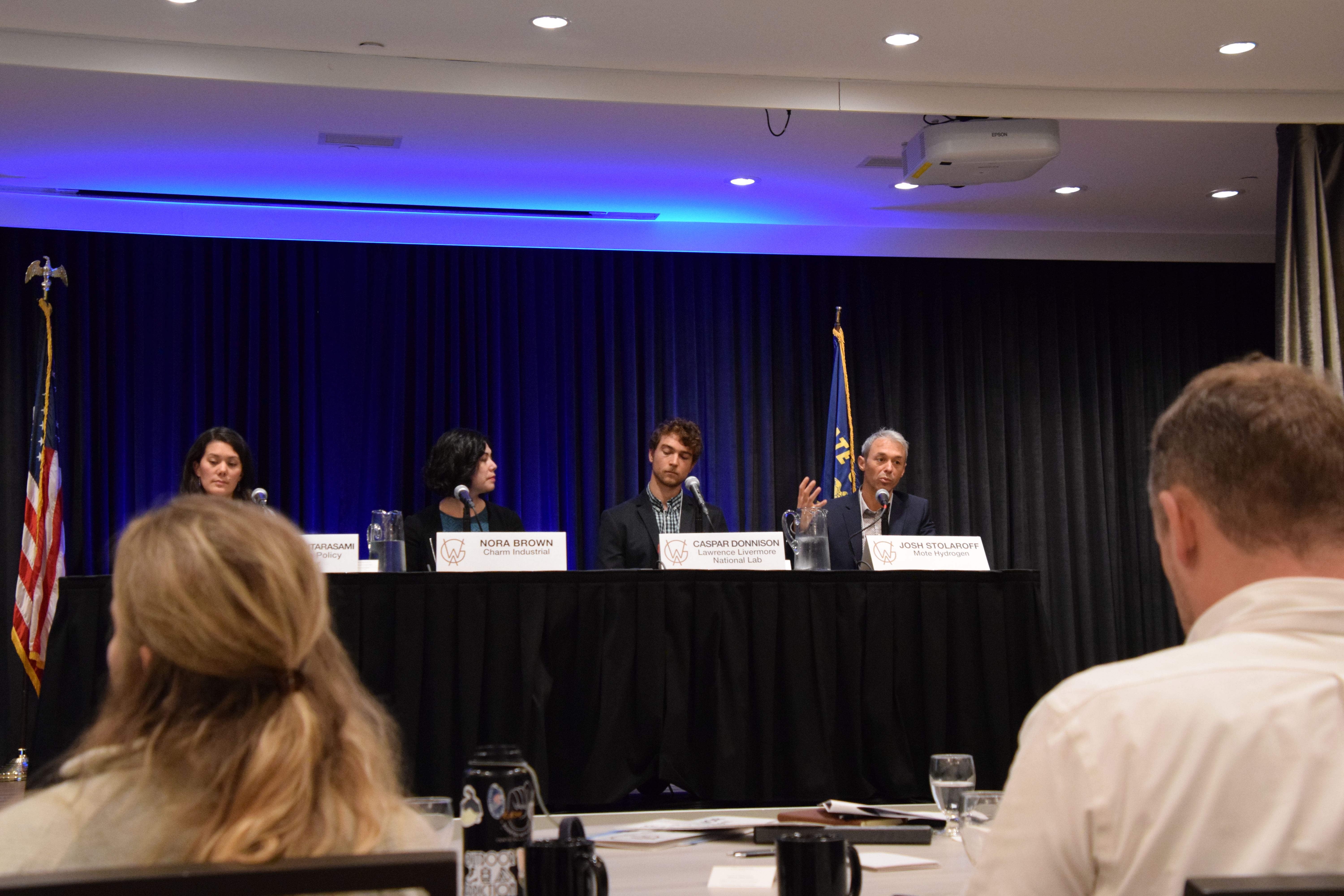
Panelists: Josh Stolaroff, Chief Executive Officer, Mote Hydrogen; Nora Brown, Head of Market Development and Policy, Charm Industrial; Caspar Donnison, Energy Systems Researcher, Lawrence Livermore National Laboratory; Moderated By: Lesley Janatrasami, Managing Director, Energy Program, Bipartisan Policy Center.
Roundtable 3: Expanding Utilization of Carbon Derived Products
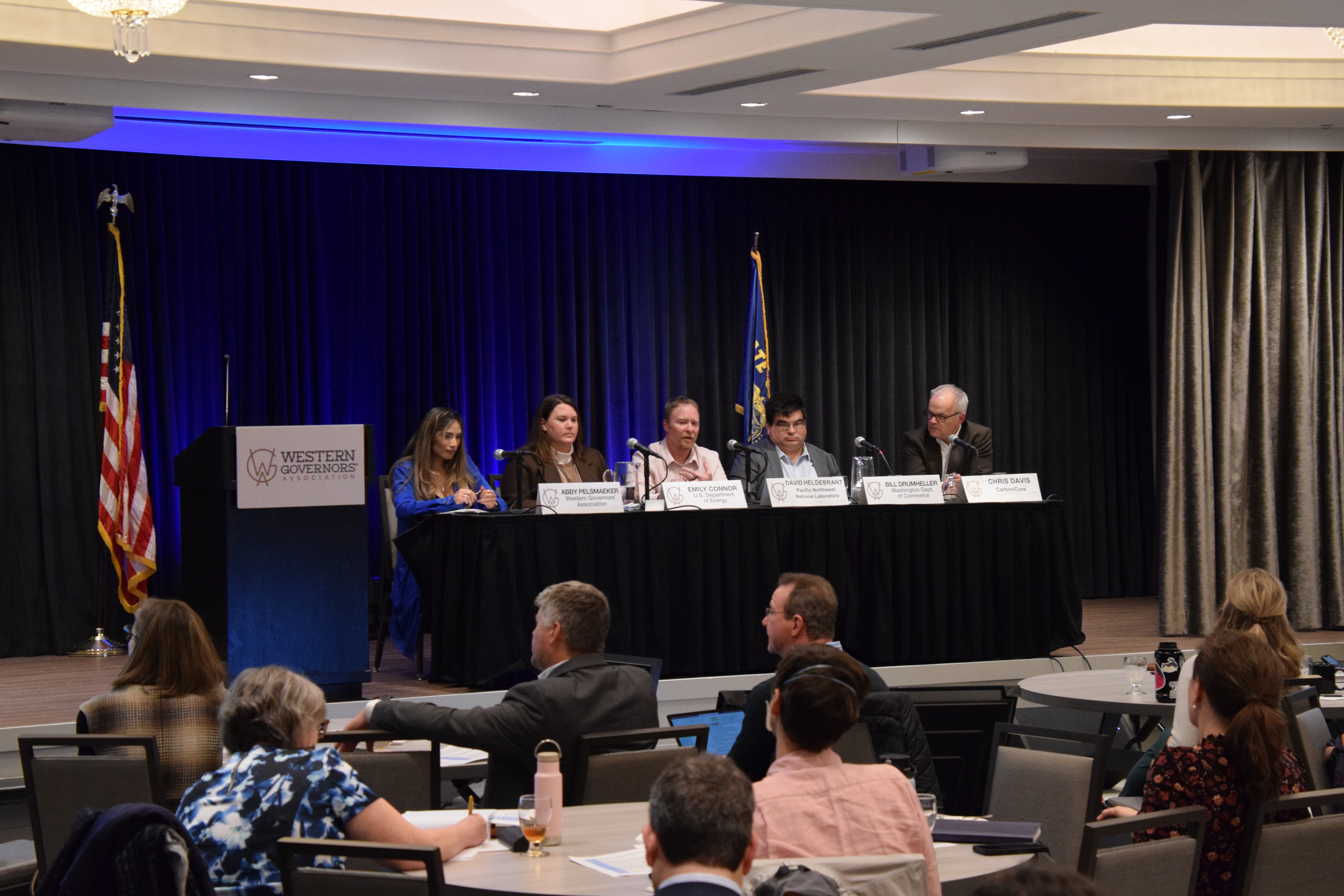
Panelists: Emily Connor, Program Manager, Carbon Conversion, Office of Fossil Energy and Carbon Management, U.S. Department of Energy; Bill Drumheller, Senior Energy Policy Specialist, Washington State Dept. of Commerce; David Heldebrant, Laboratory Fellow, Pacific Northwest National Laboratory; Chris Davis, Vice President for Public Policy and Carbon Products, CarbonCure. Moderated By: Abby Pelsmaeker, Policy Advisor, Western Governors’ Association.
Roundtable 4: Tribal Engagement in Decarbonization
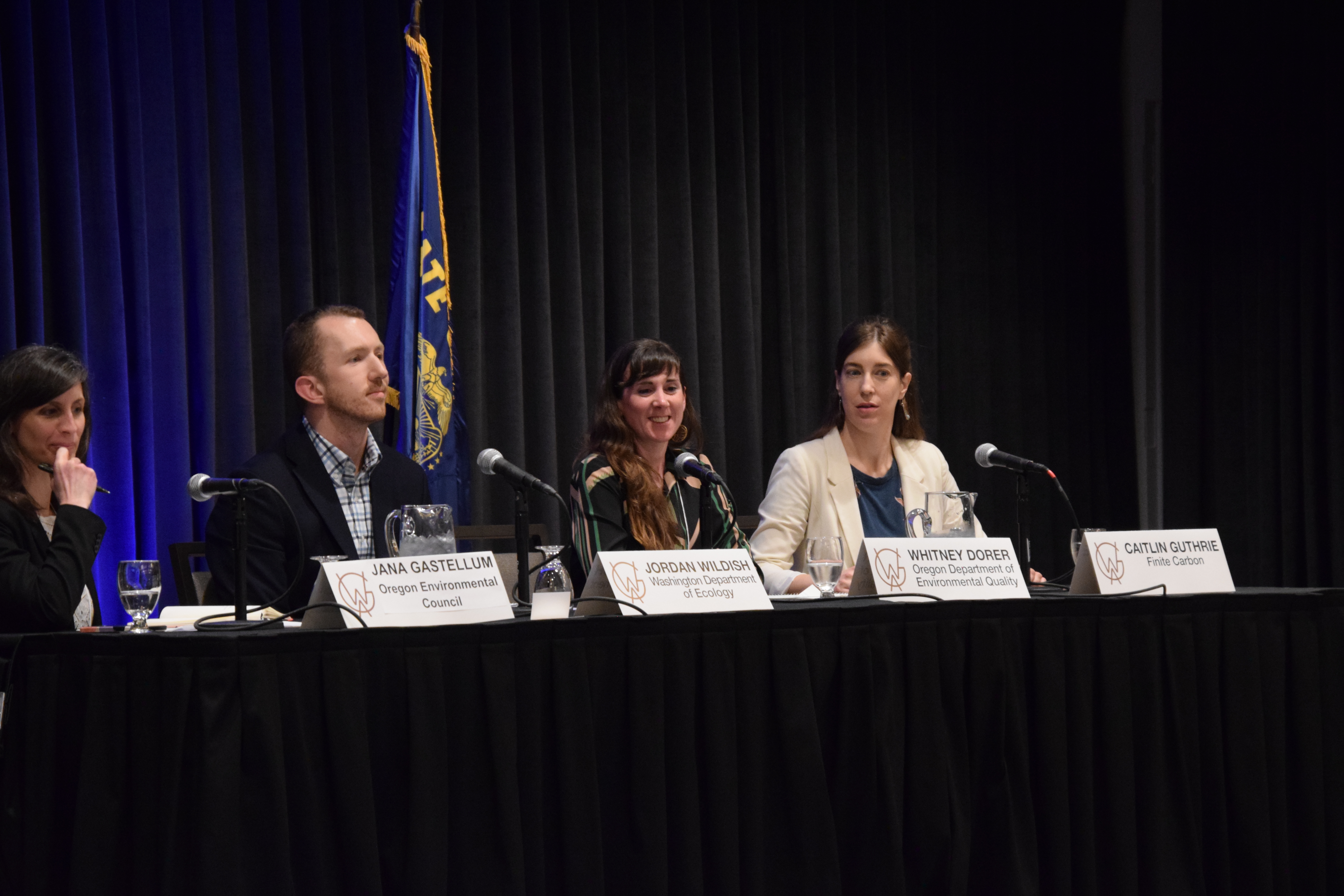
Panelists: Jordan Wildish, Cap-and-Invest Offsets Lead, Washington Department of Ecology; Whitney Dorer, Climate Policy Community Engagement Coordinator, Oregon Department of Environmental Quality; Caitlin Guthrie, Director of Forest Carbon Origination, Finite Carbon. Moderated By: Jana Gastellum, Executive Director, Oregon Environmental Council.
Day 2
Roundtable 5: Coastal Ecosystem Resilience for Natural Sequestration
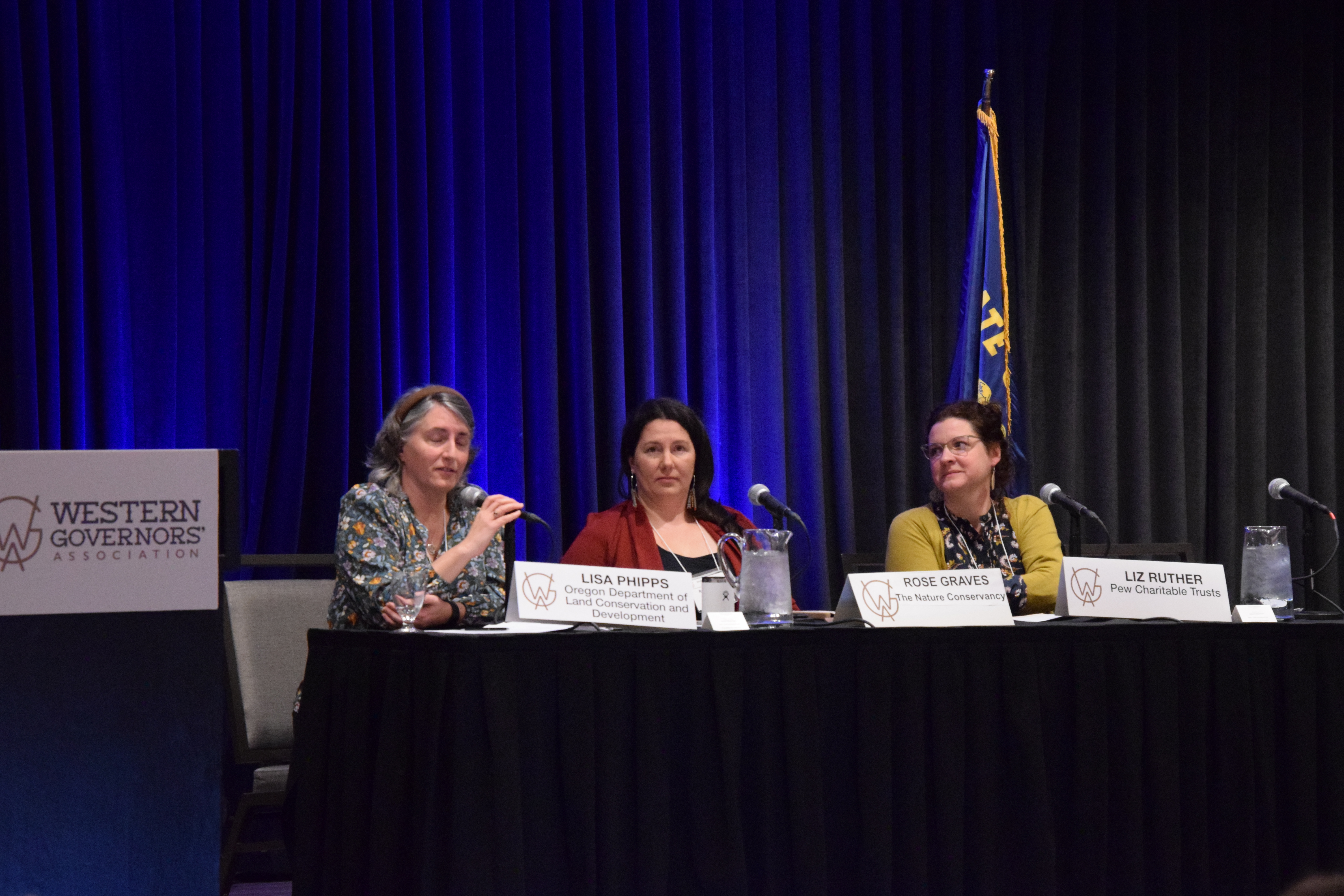
Panelists: Liz Ruther, U.S. Conservation Program Officer, West Coast, Pew Charitable Trusts; Cathy Macdonald, Natural Climate Solutions Director, The Nature Conservancy; Rose Graves, Natural Climate Solutions Scientist, The Nature Conservancy. Moderated By: Lisa Phipps, Coastal Management Program Manager, Oregon Department of Land Conservation and Development.
Roundtable 6: Food Systems and On-Farm Decarbonization
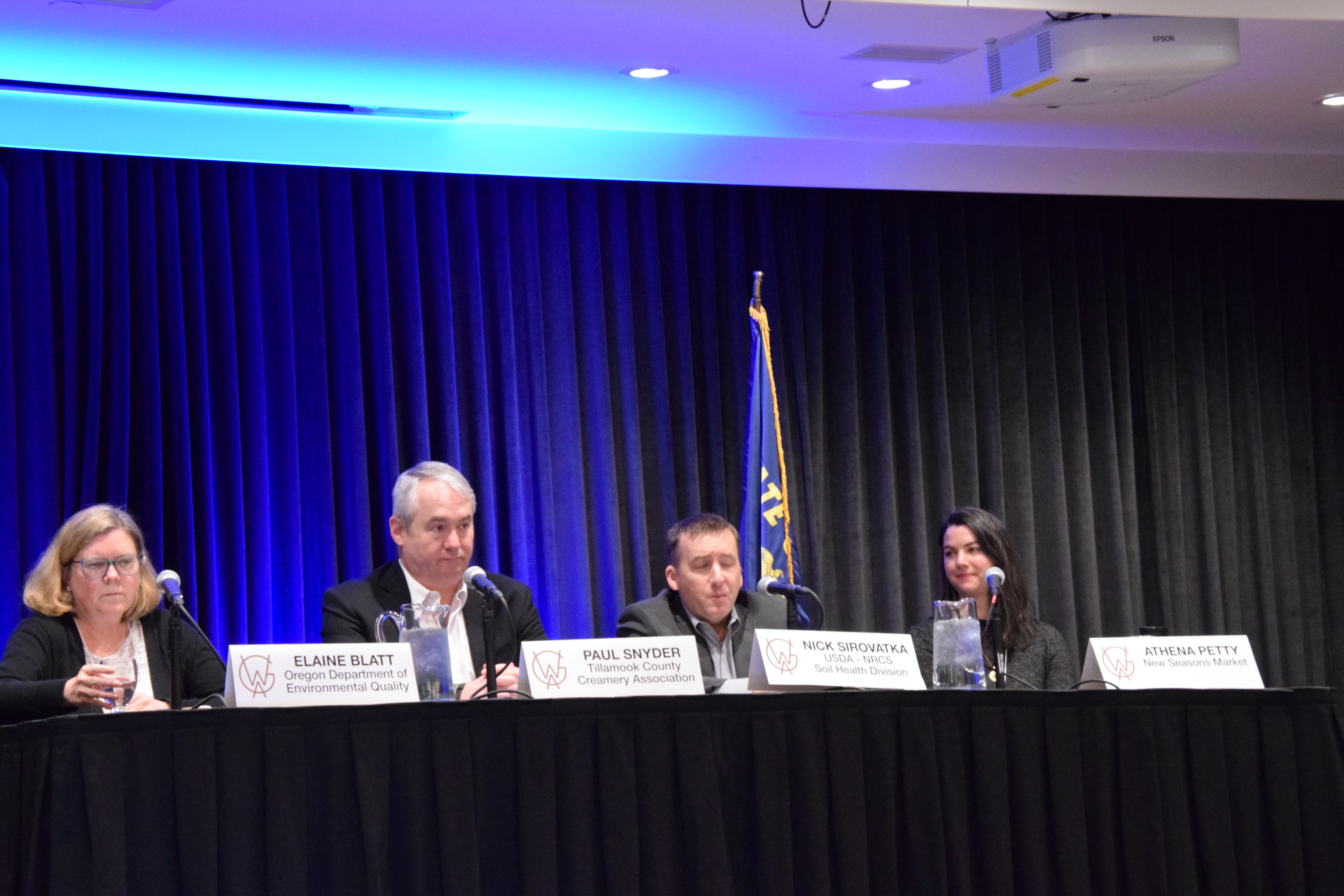
Panelists: Nick Sirovatka, Soil Scientist, Natural Resources Conservation Service Soil Health Division, U.S. Department of Agriculture; Athena Petty, Senior Manager of Sustainability, New Seasons Market; Paul Snyder, Executive Vice President of Sustainability, Tillamook. Moderated By: Elaine Blatt, Senior Policy and Program Analyst, Oregon Department of Environmental Quality.
Roundtable 7: A Case Study of Regional Decarbonization Efforts
The West contains a vast array of geologic features, natural resources, and infrastructure, meaning that effective carbon dioxide removal looks different in different areas and contexts. The Carbon TrapRock Project aims to address carbon removal and sequestration in the Pacific Northwest by utilizing the vast Columbia River Basalt Group (CRBG). This natural basalt formation has the potential to permanently store billions of tons of CO2 while leveraging other co-benefits. Although it’s in an early stage, the project envisions a regional "carbon shed" system, sourcing CO2 from industrial plants, direct air carbon capture, and wood from overstocked forests. This panel will examine lessons learned from the Carbon TrapRock project and explore how it may serve as a case study for other large-scale decarbonization projects across the West.
Panelists: Matt Donegan, President, Donegan Advisors LLC; Megan Gavin, Partner, Cascadia Law Group PLLC. Moderated by: Anastasia O’Rourke, Senior Managing Director, Carbon Containment Lab.